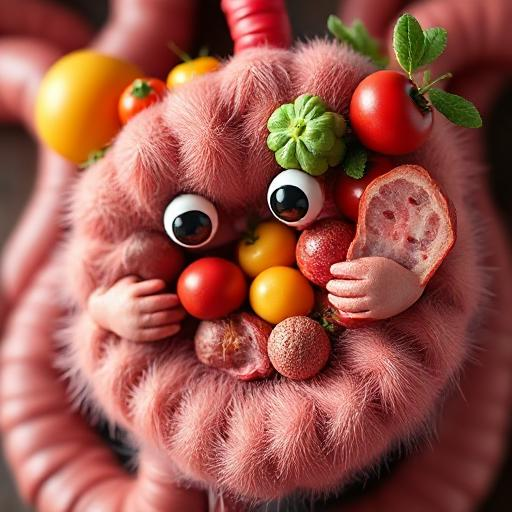Imagine your gut as a massive, 24/7 party zone—except the guest list depends entirely on what you eat. Give it the right fuel, and it’s a five-star VIP bash. Load up on junk, and, well… let’s just say your gut turns into a sketchy basement gathering with some rather questionable attendees.
According to fresh research, people who eat more plant-based foods—whether they’re vegans, vegetarians, or just omnivores with a thing for veggies—have a way healthier gut microbiome than those who go all-in on red meat and processed foods. Why does this matter? Because your gut bacteria aren’t just freeloaders—they influence everything from digestion to metabolism, and even your mood!
🔹 What’s the Deal with Meat?
Red meat is like that one guest who never knows when to leave—too much of it encourages bacteria linked to inflammation and gut issues.
🔹 And What About Plants?
Plant-based foods, on the other hand, bring in the good guys—microbes that help digestion, reduce inflammation, and support your overall health. More fiber = happier gut!
So, How Do You Keep Your Gut Party Lit?
✅ Eat the rainbow – No, not Skittles. Load up on colorful fruits and veggies. Variety is key!
✅ Go for whole grains – Oats, quinoa, and whole wheat keep your gut bugs happy.
✅ Fermented foods = your besties – Yogurt, kimchi, kombucha, and sauerkraut are like VIP tickets for good bacteria.
✅ Chill on the ultra-processed stuff – It’s basically the toxic drama of the gut party. No one needs that.
Bottom line? You don’t have to go full vegan—just make sure your plate isn’t a meat-only mosh pit. Give your gut a squad of good bacteria, and they’ll have your back (and your belly) for life! 🚀
Fanni Zantleitner




